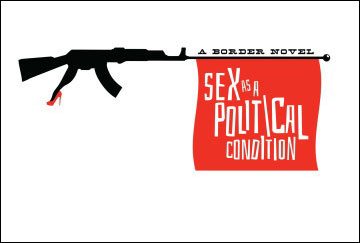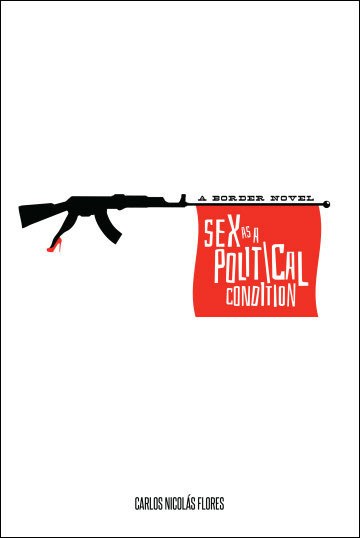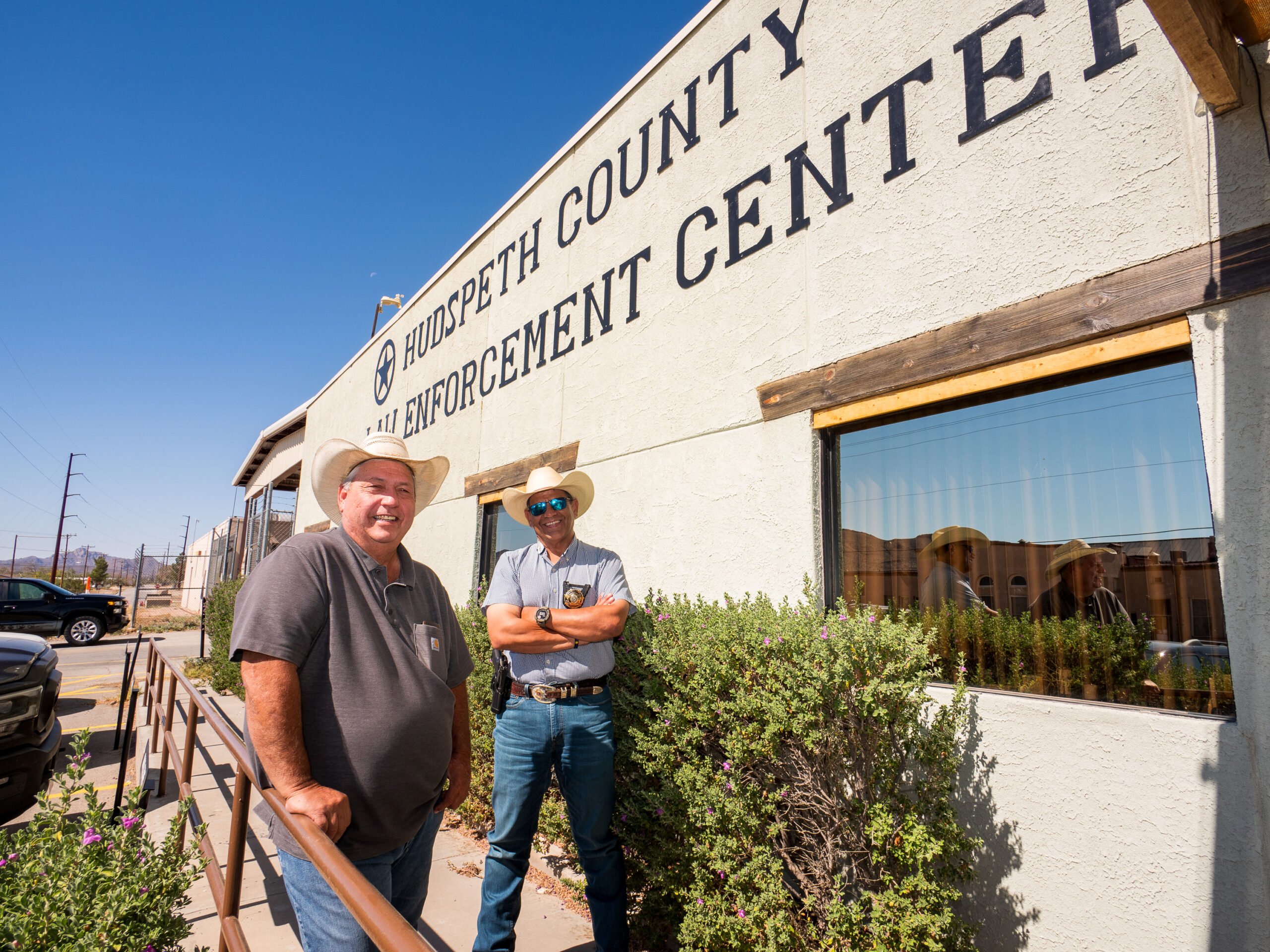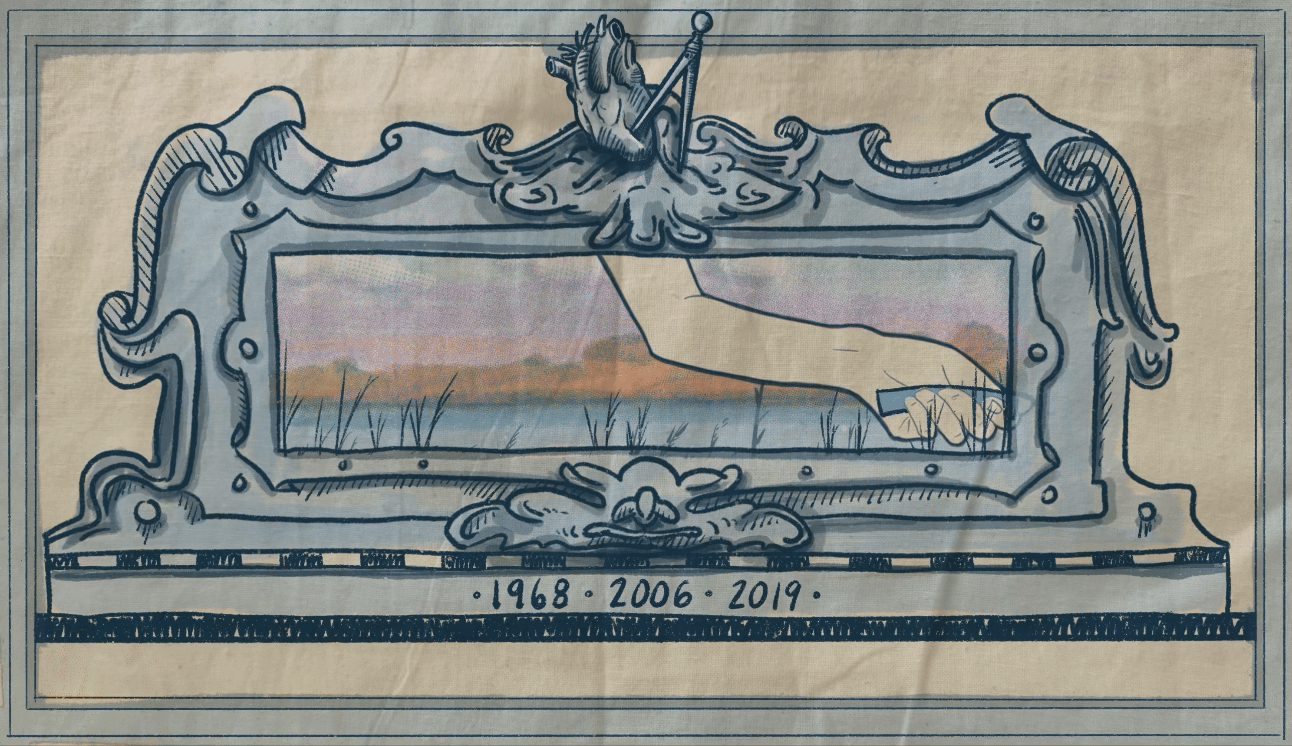
The Observer Review: Sex As a Political Condition, by Carlos Nicolás Flores

By Carlos Nicolás Flores
Texas Tech University Press
384 page; $34.95
The U.S.-Mexico border lacks a rebel and Honoré del Castillo lacks a cause in Carlos Nicolás Flores’ novel, Sex as a Political Condition. Honoré, a former drug runner, has given up the smuggling life and moved back to his Rio Grande Valley hometown of Escandón, “El Barrio Sal Si Puedes … El Barrio Get-Out-If-You-Can,” where he chases his sexy wife, Maruca, around the bedroom and manages his dying mother’s Mexican curio shop. But Honoré is growing disillusioned with domestic life and increasingly afraid of dying in front of the television set like a pendejo. He still dreams of the old revolutionary heroes: José Martí, Che Guevara, Don Quixote. “People in this barrio are like possums,” he narrates. “When life or history confronts them, they play possum. They play dead. Then, life or history just runs over them.” Luckily, Honoré finally gets his chance to play the hero when his friend Trotsky, who has dedicated himself to the Marxist cause in Central America, arranges a convoy to carry humanitarian aid to the Sandinistas.
What follows is a hokey, jokey, postmodern romp that combines all the conventions of action-adventure movies with a kitschy take on Latin American politics. Honoré teams up with his old drug-running pals, a Harley-riding gringo called the Governor and Chicano clown Joshua T. “Tequila” Cuervo. Along the way they meet a motley assortment of idealists — Chicana lesbian activists, Mexican anti-corruption crusaders, drug-smuggling rednecks, idealistic Vietnam vets — and an equally motley assortment of antagonists: corrupt border cops, femme fatale hookers, torturers, narcos and CIA informants. “Some strange-looking women stormed inside,” Flores writes. “With close-cropped hair, they would have looked best in Nazi uniforms, swaggering around in construction boots, slouching hangdog style. He couldn’t tell if they were from Escandón or from out-of-town. Maybe Austin.”
Flores, an El Paso native who teaches English at Laredo Community College, is clearly having fun, but at times the action is so frantic that it’s difficult to follow through the nonstop onslaught of kitsch. His book is a black velvet painting of all things Mexican: a wrought-iron mariachi figure with bandoliers and a sombrero holding a shot of tequila, a Day of the Dead sugar skull and a picture of Frida Kahlo eating enchiladas. Breasts proliferate with reckless abandon. They bob and wiggle, they roll and pour, they spread like swirls of chocolate. They are compared to onions, tomatoes, mangoes, calabazas, gourds, scoops of ice cream, ivory pudding, flan, cupcakes, blowfish, boulders, boxing gloves, tulips, smooth mounds of Mexican cheese, B-52 bombers, twin puppies and vanilla malts topped with pink cherries. ¡Ay, Mamasota!
But humor is a two-edged sword, and Flores sometimes impales himself on it. It is difficult to tell whether Honoré is supposed to be heroic or ridiculous. Is he saving the world, or just shepherding a crowd of eccentric egomaniacs? As Honoré complains near the beginning of the novel, “The revolution is beginning to feel like a free-for-all among freaks.”
The mood becomes more somber as the convoy moves south, but even in the teeth of battle, Flores can’t bring himself to abandon the silliness. A character farting when confronted with a mixed-race hermaphroditic torturer may be considered a gesture of defiance, but here it comes across as cartoonish, even unrealistic, as if Flores’ revolutionaries are totally incapable of seriousness.
In fact, one gets the feeling that Flores believes no revolution can ever take place in a world so full of boobies and bodily functions. That a revolution might be fought and won by a cast as weird as the one in his book is an indignity too insane to imagine.


